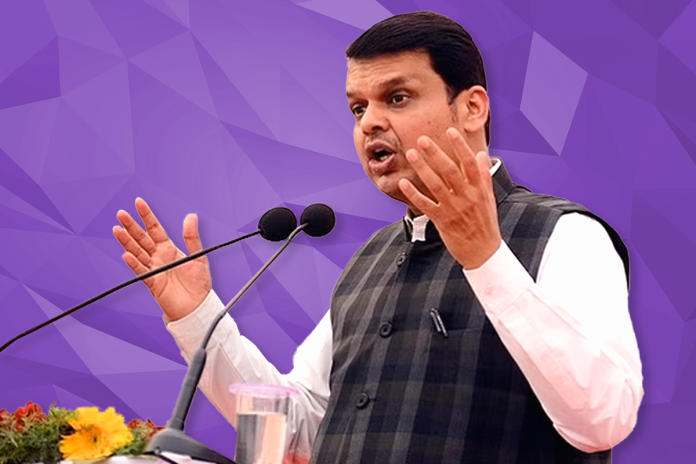In an unprecedented move, Koyasan University in Japan bestowed an honorary doctorate upon Maharashtra’s Deputy Chief Minister, Devendra Fadnavis, on 26 December. This accolade, reportedly the first in the university’s 120-year history, recognises Fadnavis’ exceptional contribution to infrastructure development in Maharashtra over the last few years.
Since becoming the Chief Minister of Maharashtra in 2014, Fadnavis has, through collaboration and funding from Japan, turned around and executed multiple infrastructure projects in the state.
Here’s a brief look at some of those projects:
1) Mumbai Trans Harbour Link (MTHL)
One of the most notable achievements under Fadnavis’ leadership is the revival of the Mumbai Trans Harbour Link (MTHL) project. Dormant for 53 years, the Fadnavis war room breathed new life into this critical infrastructure endeavour in 2015.
Securing essential state and central clearances between November 2015 and January 2016, Fadnavis ensured the project’s funding from the Japan International Cooperation Agency (JICA).
Prime Minister Narendra Modi laid the foundation stone of the project in December 2016.
The MTHL, a 22-km-long marine road bridge, is poised to significantly reduce travel time between South Mumbai and Navi Mumbai to just 20 minutes.
The mega project is expected to mitigate traffic congestion in the island city and promote economic development in Navi Mumbai and greater economic integration of Mumbai, Navi Mumbai, and their extended regions such as Pune, Goa, Panvel and Alibaug.
2) Mumbai-Ahmedabad Bullet Train
Fadnavis’ commitment to expediting vital infrastructure projects was further demonstrated through the Mumbai-Ahmedabad High-Speed Rail Corridor.
Assuring Japan of fast-tracking initiatives funded by JICA, the Maharashtra government, under Fadnavis’ leadership, facilitated swift clearances for the bullet train project.
The move accelerates land acquisition processes and propels Maharashtra towards the realisation of this ambitious high-speed rail network.
The Mumbai-Ahmedabad High-Speed Rail (MAHSR) project is 508 km long and is India’s first high-speed rail corridor. The total project cost is Rs 1.1 lakh crore, which is slated to increase more than Rs 1.5 lakh crore.
3) Versova-Virar Sea Link
During his visit to Japan, Fadnavis garnered enthusiastic support for the Versova-Virar Sea Link Project from the Japanese government and the Japan International Cooperation Agency (JICA).
This proposed 43-km elevated road aims to connect Versova to the burgeoning residential hub of Virar. Beyond the sea link, the project encompasses approximately 60 km of suburban roads, promising to alleviate traffic congestion on key routes and spur economic development in the city region.
With an estimated completion date set for December 2026, this project is poised to redefine connectivity in the Mumbai Metropolitan Region.
4) Mumbai Metro 3 Overcoming
Fadnavis also confronted challenges associated with the Mumbai Metro Line 3 (Colaba-Bandra-SEEPZ), addressing controversies related to land allocation for its depot.
The first cabinet meeting of the new state government in 2022 prioritised clearances for the project.
In collaboration with the JICA, the Mumbai Metro Line 3 project received a significant official development assistance (ODA) loan of Rs 2,480 Crore.
With a planned route of 33.7 km and 26 stations, the underground network is positioned to enhance connectivity from southern Mumbai to key activity areas, including Bandra Kurla Complex (BKC), the airport, and SEEPZ.
To sum up, Devendra Fadnavis has played a pivotal role in steering Maharashtra’s resurgence in infrastructure development. The collaborations with Japan, facilitated through partnerships with JICA, highlight the worldwide importance of the state’s ambitious projects.
As Maharashtra moves forward with improved connectivity, economic growth, Fadnavis solidifies his legacy as the chief architect of this transformative era.


